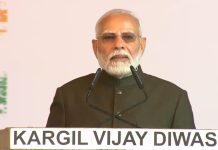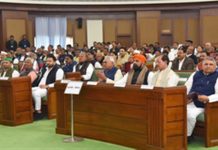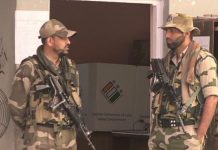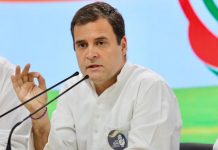While Pakistan awaits the outcome of the general election in India slated for May-June, it should be mindful of the fact that abrogation of Article 370 has altered the complexion of Kashmir issue. So now, the two countries would need to evolve new terms of engagement. A report by Riyaz Wani
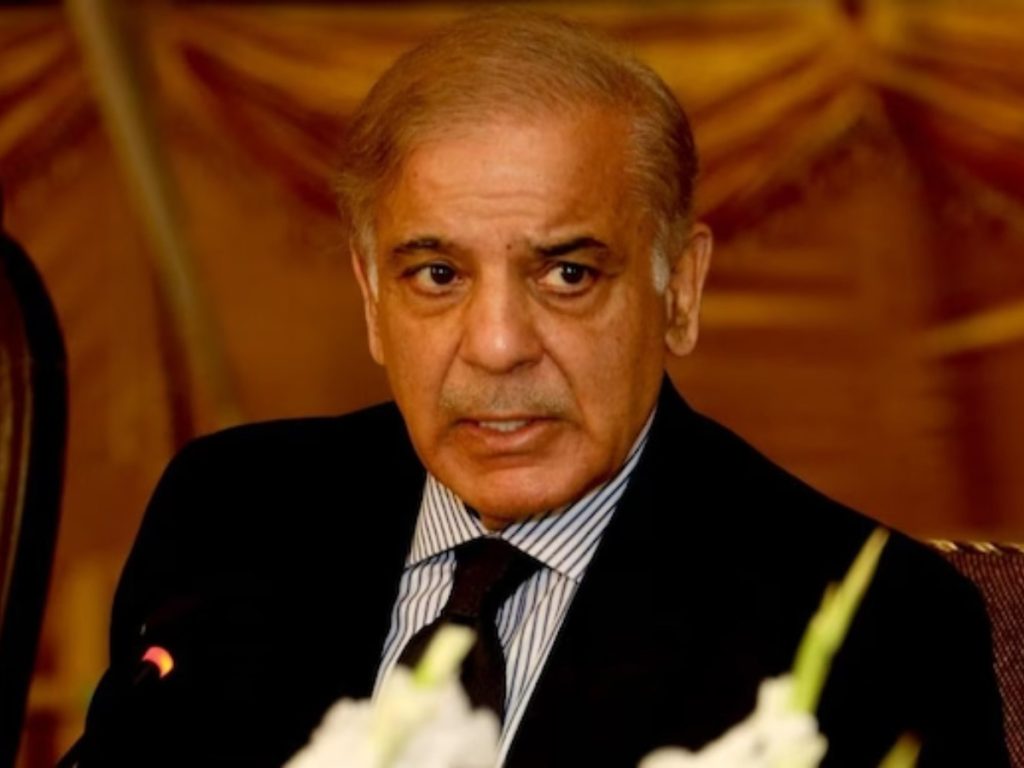
What does the takeover of Shehbaz Sharif-led coalition government mean for Kashmir and India-Pakistan engagement? Apparently, not much. The new PML-N and Pakistan People’s Party (PPP) coalition will take over amid credible allegations that the elections were brazenly rigged to ensure their return to power. But despite that, the independents backed by Pakistan Tehreek-i-Insaf (PTI), the incarcerated Imran Khan’s party, got the largest number of seats. The party, however, has refused to ally with either the PML-N or the PPP, with the result that it won’t be able to form the government. Also, given the party’s difficult relationship with the Pakistan Army, it is unlikely that the PTI-backed independents would get the necessary support to lead a coalition government of their own. So, Sharif is the country’s new prime minister.
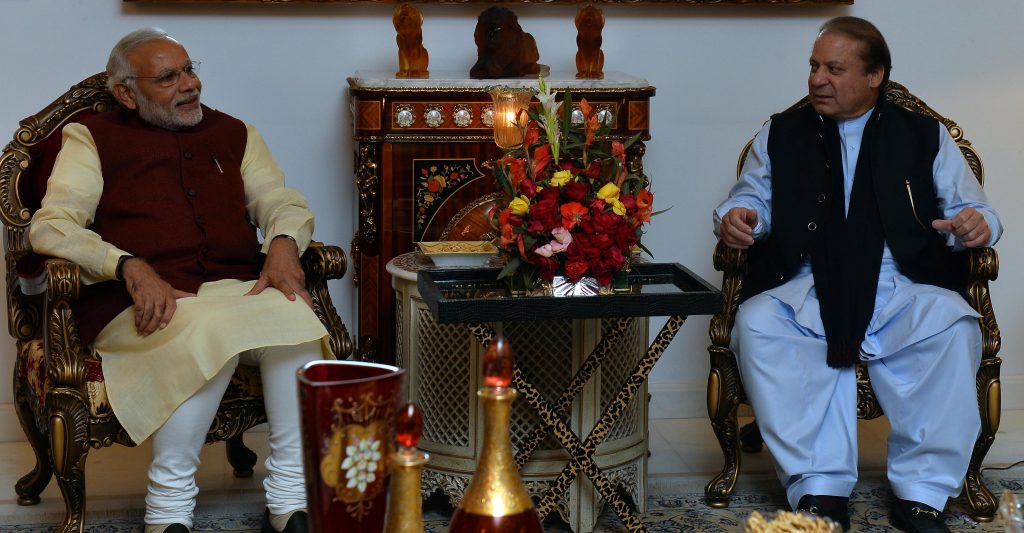
From India’s point of view, Sharif as the Pakistan PM holds more promise for friendly bilateral relations than Khan, who in his term in office adopted a fiercely hawkish stance towards India, especially towards Prime Minister Narendra Modi. But the Sharif family is known to be more reconciliatory in its approach towards India, and there is hope that the new Pakistan prime minister will take steps to restore some kind of a relationship with India. When PM Modi was sworn in 2014, Nawaz Sharif was among the invited regional leaders who had visited India for the ceremony. And later in 2015, Modi made an impromptu visit to Lahore to attend the wedding of Sharif’s granddaughter. But the bonhomie between the two countries was cut short when the militants traced to Pakistan attacked an Army base in Pathankot. From thereon, the relationship went steadily downhill reaching its nadir when New Delhi abrogated Article 370 of the constitution in August 2019.
The neighbours tried to pick up the pieces with the surprise re-affirmation of the 2003 ceasefire along the Line of Control in February 2021. Ever since, however, they have failed to build upon the truce and restore the dialogue process between them.
Would Modi-Sharif be able to pull it off? Chances don’t seem bright enough. This is despite the fact that even the Pakistan Army is reportedly in favour of resuming dialogue with New Delhi. But inherent limitations of the new ruling arrangement in Pakistan will make it difficult to reach out to New Delhi and institute a process of dialogue. This points towards a possibility for restoration of some engagement. But as is the case with India-Pakistan ties, nothing can be said with certainty until things actually turn around. This is because the conditions for engagement between the neighbours remain irreconcilable. Pakistan wants to place Kashmir at the front and centre of its dialogue with New Delhi which is unacceptable to India. Pakistan also wants India to restore Article 370 that granted J&K its semi-autonomous status within India, which, again, India sees as irreversible. More so, after the Supreme Court endorsed the Modi government’s move, making the constitutional provision’s abrogation a fait accompli. The unmistakable signal to Pakistan is to temper its expectation about the extent to which India can accommodate it on Kashmir. In fact, New Delhi now wants Kashmir off the table in any future discussion with Islamabad. The only issue about Kashmir that is pending resolution, according to India, is the Pakistan Occupied Kashmir (PoK) which New Delhi wants to be returned to and even threatens to take it back through a military operation.
As for talks with Islamabad, India, as always, wants terrorism to be the central issue and wants Pakistan to stop supporting militancy in Kashmir. Pakistan of course doesn’t accept that it backs terrorism.
But it was with these irreconcilable positions intact that the two countries in February 2020 agreed to reinstate their 2003 ceasefire along the Line of Control and made positive noises signaling a return to dialogue. But they failed to build on the goodwill as any such effort was undone by New Delhi’s refusal to concede on Kashmir. There have been no further measures, nor does it look likely there will be in the near future. New Delhi seems in no hurry to do this. If anything, this only goes on to show that India feels little need to relent and wants Pakistan to reconcile with the new status quo. But Pakistan seems unlikely to do so. More so, under a government that lacks legitimacy in the eyes of a large majority of its people following an election where Khan’s PTI was the obvious choice of an overwhelming majority of the voters.
As for India’s concerns about Pakistan fanning violence in Kashmir, Islamabad in recent years has appeared less than eager to support flagging militancy in Kashmir Valley. More so, following the abrogation of Article 370, when a section of public opinion in Kashmir and the rest of India expected otherwise. Albeit, Islamabad did raise diplomatic ante which, in turn, achieved nothing. This could be both because of Pakistan’s ongoing troubled economic situation and its beleaguered geopolitical standing. Or it could also be the outcome of the dominance enjoyed by the security forces in Kashmir, which has increasingly narrowed the space for militants to operate. Hence, probably, the tactical shift of militancy to the Jammu division, which had otherwise been militancy-free over the last decade and a half. The militancy in Rajouri and Poonch has witnessed a sharp rise throughout 2023 and it remains to be seen how the situation evolves in 2024.
Going forward, it looks unlikely that India and Pakistan could go back to any engagement in the near future. Immediately, however, any further progress in the relations will be subject to the outcome of the general election in India in May-June. It is believed that the re-election of PM Modi, as looks likely, and Shehbaz Sharif as Pakistan prime minister would be more conducive to resumption of dialogue between the two neighbours. They could pick up where PM Modi and former Pakistan prime minister Nawaz Sharif – brother of Shehbaz Sharif – left off in 2017 when the latter was forced out of power. However, the regional situation has since transformed. And with the abrogation of Article 370, the complexion of the Kashmir issue too has altered. So, for the two countries to re-engage, they would need to evolve new terms of engagement. And it is easier said than done. This would call for a diplomatic leap of faith, more so, on the part of Pakistan.


